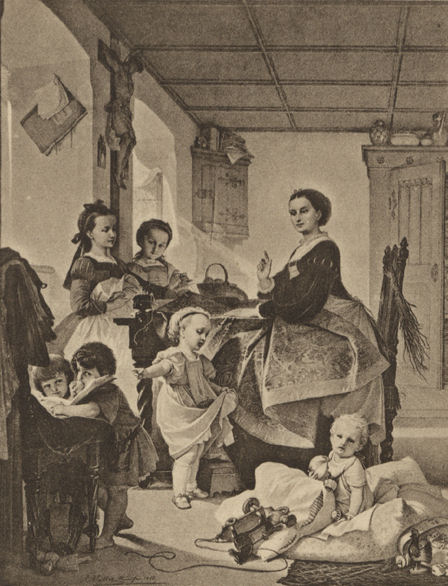Eliza R. Snow loved to write poetry. Even as a young girl, she penned her compositions in rhyme.
She was born in Mass. in 1804 to Reformed Baptist parents. Her mom and sister were baptized into the Church of Jesus Christ of Latter Day Saints in 1831, and Eliza followed later in 1835–taking her time to “prove all things.” Her family moved from Ohio to Missouri to Illinois, when she was forced to leave the state with other Mormons and follow Brigham Young to a land free from persecution.
In Utah, Eliza headed up the women’s organization, called The Relief Society, as well as organizing the Young Women’s Association and the children’s association, called Primary. She encouraged women to attend medical school and teach nursing and midwifery in Utah, and headed up the establishment of the first Hospital in Deseret (Utah).
And wrote in rhyme, many of her beliefs.
She wrote this poem in 1845 in Nauvoo, Illinois, which has been sung to various hymns and is contained in the Hymn Book. She pens the belief of a life before this mortal existence, of a Heavenly Father and a Mother in Heaven; and the idea of a Godly Father that has and does interact with us:
O My FatherO my Father, thou that dwellestIn the high and glorious place,When shall I regain thy presenceAnd again behold thy face?In thy holy habitation,Did my spirit once reside?In my first primeval childhoodWas I nurtured near thy side?For a wise and glorious purposeThou hast placed me here on earthAnd withheld the recollectionOf my former friends and birth;Yet ofttimes a secret somethingWhispered, “You’re a stranger here,”And I felt that I had wanderedFrom a more exalted sphere.I had learned to call thee Father,Thru thy Spirit from on high,But, until the key of knowledgeWas restored, I knew not why.In the heav’ns are parents single?No, the thought makes reason stare!Truth is reason; truth eternalTells me I’ve a mother there.When I leave this frail existence,When I lay this mortal by,Father, Mother, may I meet youIn your royal courts on high?Then, at length, when I’ve completedAll you sent me forth to do,With your mutual approbationLet me come and dwell with you.Text: Eliza R. Snow, 1804–1887


